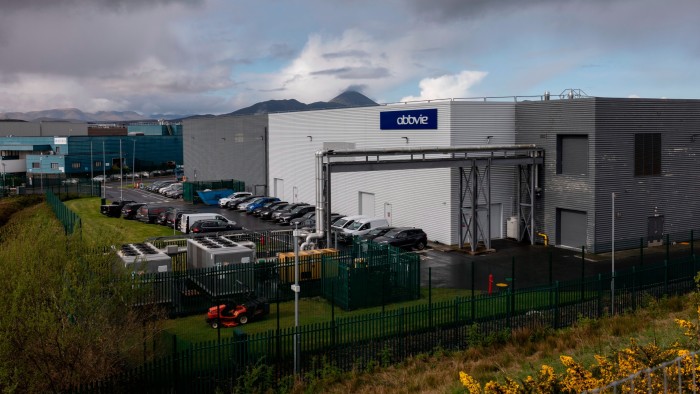Unlock the White House Watch newsletter for free
Your guide to what Trump’s second term means for Washington, business and the world
There was once an English-speaking country that tried to make itself economically self-sufficient by imposing tariffs and quotas on trade. Its protectionist experiment was a miserable failure: the economy stagnated and many people emigrated.
Ireland learnt its lesson: from the 1960s onwards, it opened up and attracted foreign direct investment with one of the lowest corporate tax rates in the world. Lately, its economic change of heart has worked almost too well. It runs a huge trade surplus with the US and taxes from US pharmaceutical and technology companies have brought a financial windfall.
Enter Donald Trump, a US president whose predilection for tariffs matches that of 1930s Ireland. Lacking the innate affection for the country of presidents such as Joe Biden, he takes a dim view of its sharp tax and trade policies. “Ireland was very smart. They took our pharmaceutical companies away from presidents that didn’t know what they were doing,” he said last month.
One of those presidents, it must be said, was Trump himself. The tax bill he signed in 2018 during his first term increased the incentive for companies to move production to Ireland and export back to the US. Pharma groups took full advantage: drugs such as Botox are now invented in the US but made in Ireland. Drugs and medicinal products comprised 61 per cent of Ireland’s €73bn US exports last year.
That has been very good for the country’s finances: its fiscal surplus should allow it to amass €16bn in its twin sovereign wealth funds this year. But it also relies on the US continuing to tolerate what Brad Setser, senior fellow of the Council on Foreign Relations, calls the “big charade” perpetrated on US taxpayers by US pharmaceutical companies. Ireland should not bet on this now.
So far, Ireland has escaped most of Trump’s tariffs, but only 2 per cent of its exports would be immune if he imposes a threatened tariff on US pharma imports. Governments have negotiated with limited success to untangle multinationals’ bundle of tax avoidance tricks. Trump would chop the Gordian tax knot in his own special way.
This places Ireland among the countries with most to lose from the US turn against global trade. Aidan Regan, professor of political economy at University College Dublin, says that it “could be the end of the road for the Irish FDI-led growth model” of recent decades. It is clearly the most serious threat to Ireland’s economy since the 2008-09 global financial crisis.
Although no one knows how far Trump will pursue his tariff crusade, Ireland can take comfort from the long-run nature of its transformation. The economy was recovering from the financial crisis before the pharma sector was accidentally supercharged by Trump’s tax law. There are 970 US companies in Ireland, most of which were there before the law passed.
Ireland will keep its low corporation tax rate, first set at 12.5 per cent two decades ago. This has risen to 15 per cent for large companies under OECD reforms but there is little prospect of it being pushed further. Trump has weakened the US commitment to global tax agreements and Irish tax competition has dropped down the list of most countries’ financial concerns.
It was also clear before Trump’s intervention that Ireland’s fiscal fortune was unsustainable. Last year was its third in fiscal surplus and 30 per cent of its tax revenues came from corporation tax, with three-quarters of this contributed by US multinationals. The Irish government estimates that half of the total was a windfall; it is not surprising that Trump wants to correct his error.
While tariffs are not the usual method for achieving corporate tax reform, they might work. Having transferred licences and intellectual property rights into Ireland to minimise US profits, pharma companies cannot simply bring them back to reduce tariffs on their Irish exports. But never doubt the ingenuity of corporate accountants when billions in taxes are at stake.
It will be easier to divert fiscal flows than to close Irish factories and build US ones. Not only would the latter take longer and require faith that Trump will not change his mind but Ireland is a production hub for the EU. The original purpose of its low corporate tax rate was to attract investment and build employment, not to reap profits by arbitraging the US tax code.
If tariffs end Ireland’s windfall but leave most of its manufacturing base intact, that would be a fair outcome. The country has boxed cleverly for a long time and its recent years are a fiscal anomaly, not a lasting bounty. What Trump gave, he can take away.
john.gapper@ft.com


